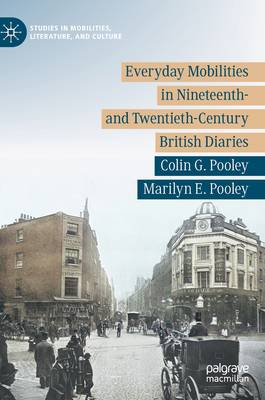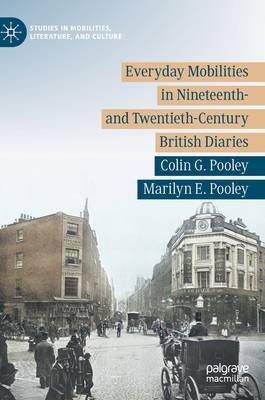
Bedankt voor het vertrouwen het afgelopen jaar! Om jou te bedanken bieden we GRATIS verzending (in België) aan op alles gedurende de hele maand januari.
- Afhalen na 1 uur in een winkel met voorraad
- Gratis thuislevering in België vanaf € 30
- Ruim aanbod met 7 miljoen producten
Bedankt voor het vertrouwen het afgelopen jaar! Om jou te bedanken bieden we GRATIS verzending (in België) aan op alles gedurende de hele maand januari.
- Afhalen na 1 uur in een winkel met voorraad
- Gratis thuislevering in België vanaf € 30
- Ruim aanbod met 7 miljoen producten
Zoeken
Everyday Mobilities in Nineteenth- And Twentieth-Century British Diaries
Colin G Pooley, Marilyn E Pooley
€ 167,95
+ 335 punten
Uitvoering
Omschrijving
This book uses diaries written by ordinary British people over the past two centuries to examine and explain the nature and extent of everyday mobilities, such as travel to school, to work, to shop or to visit friends, and to explore the meanings attached to these mobilities. After a critical evaluation of diary writing, the ways in which mobility changed over time, interacted with new forms of transport technology, and varied from place to place are examined. Further chapters focus on the roles of family and life course, gender, income and class, and journey purpose in shaping mobilities, including immobility. It is argued that easy and frequent everyday mobilities were experienced by most of the diarists studied, that travellers could exercise their own agency to adapt easily to new forms of transport technology, but that factors such as gender, class, and location also created significant mobility inequalities.
Specificaties
Betrokkenen
- Auteur(s):
- Uitgeverij:
Inhoud
- Aantal bladzijden:
- 239
- Taal:
- Engels
- Reeks:
Eigenschappen
- Productcode (EAN):
- 9783031126833
- Verschijningsdatum:
- 20/10/2022
- Uitvoering:
- Hardcover
- Formaat:
- Genaaid
- Afmetingen:
- 148 mm x 210 mm
- Gewicht:
- 458 g

Alleen bij Standaard Boekhandel
+ 335 punten op je klantenkaart van Standaard Boekhandel
Beoordelingen
We publiceren alleen reviews die voldoen aan de voorwaarden voor reviews. Bekijk onze voorwaarden voor reviews.









